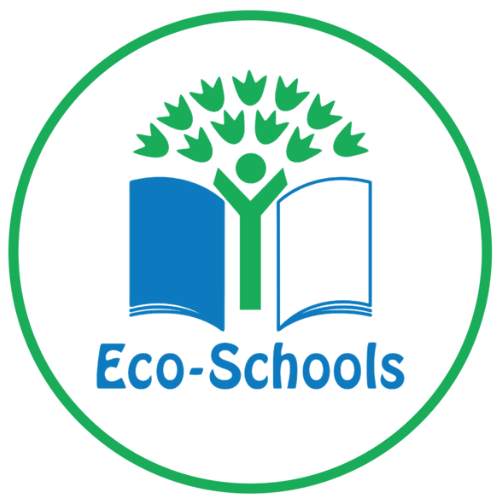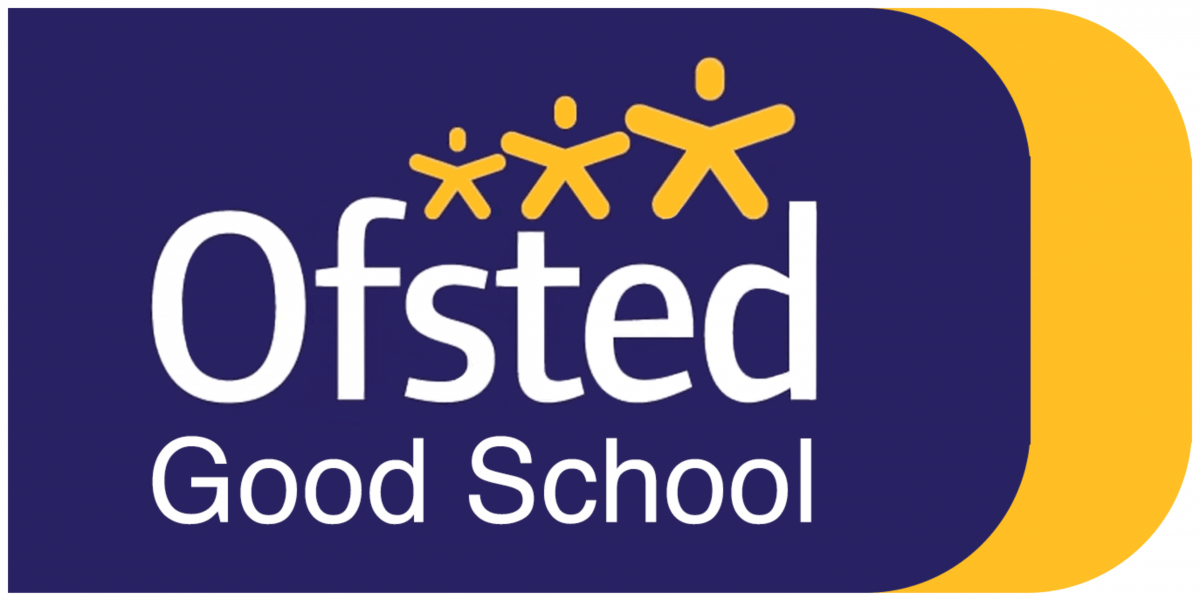Special Educational Needs and Disabilities
Our aim is to provide a creative, nurturing, safe environment with high expectations of all those who are a part of the Ferrars family.
We aim to cultivate in all our children their intellectual, emotional, social, moral and spiritual development enabling them to achieve their full potential and take their place as life-long learners in a globalised world.
We are committed to high achievement for all, supporting pupils and families in ensuring the very best of opportunities are available to them.
At Ferrars, we firmly believe that all children have an entitlement to be educated alongside their peers. As an inclusive community, we are deeply committed to removing the barriers to learning and participation that can hinder or exclude individual pupils, or groups of pupils.
All children may at some time have special needs, including able pupils. Whenever possible these needs are catered for by the child's class teacher, with support from the Wellbeing Team staff, led by the SENDCO as needed.
SENDCO contact : Mrs McDade
What is Special Educational Needs?
A child has a special educational need if he or she has a learning difficulty which calls for special educational provision to be made for him or her.
A child has a learning difficulty if he or she:
- Has a significantly greater difficulty than the majority of children of the same age
- Has a disability that prevents or hinders them from making use of educational facilities of a kind generally provided for children of the same age in schools within the area of the Local Authority
- Are under compulsory school age and fall within the definition above or would do so if the special educational provision was not made for them.
Luton SEND Information, Advice & Support Service
SENDIASS offers free, confidential, impartial information, guidance, advice and support for parents/carers of children with special and additional educational needs via telephone or face-to-face meetings.
Click on the link below to view their page:
Luton’s Local Offer SEND information hub is available to support children and young people with special education needs or a disability aged 0-25 years
Click on the link below to view their page:
In addition, click on either of the links below for direct access to the Department for Education revised documentation on Special Educational Needs and also on the link to an SEN newsletter.
SEND Information Report
SEND Information Report
2024-2025
Identifying pupils with SEND and assessing their needs
We will assess each pupil’s current skills and levels of attainment on entry, which will build on previous settings and Key Stages, where appropriate. Class teachers will make regular assessments of progress for all pupils and identify those whose progress:
- Is significantly slower than that of their peers starting from the same baseline
- Fails to match or better the child’s previous rate of progress
- Fails to close the attainment gap between the child and their peers
- Widens the attainment gap
This may include progress in areas other than attainment, for example, social needs.
Slow progress and low attainment will not automatically mean a pupil is recorded as having SEND.
When deciding whether special educational provision is required, we will start with the desired outcomes, including the expected progress and attainment, and the views and the wishes of the pupil and their parents. We will use this to determine the support that is needed and whether we can provide it by adapting our core offer, or whether something different or additional is needed.
We:
- Listen to parents’ concerns
- Observe and monitor your child’s progress regularly
- Undertake regular assessment of progress for all pupils
- Liaise with other professionals who may be working with your child
- Work closely with feeder schools when children join us to ensure your child has a smooth transition into our school
Our school currently provides additional and/or different provision for a range of needs, including:
- Communication and interaction needs for example, autistic spectrum disorder, Asperger’s Syndrome, speech and language difficulties
- Cognition and learning needs for example, dyslexia, dyspraxia
- Social, emotional and mental health difficulties for example, attention deficit hyperactivity disorder (ADHD)
- Sensory and/or physical needs for example, visual impairments, hearing impairments, processing difficulties, epilepsy
- Moderate/severe/profound and multiple learning difficulties
Planning support for a child with SEND will:
- Involve the teacher carefully assessing the child’s learning and development and progress, planning the next steps, putting support in place and then reviewing progress as they are responsible for managing the children’s support
- In some cases involve the Inclusion Manager to support decision making and to help co-ordinate support
- In some cases require support to be added to by requesting outside agency advice
- Involve the parents/carers as their knowledge and views are invaluable.
- Mean all necessary information about your child, including details of any extra support, is passed on to the new teacher and the staff will work in collaboration at transition times. This includes working closely with High Schools as the children prepare to move to KS3.
Consulting and involving pupils and parents
We will have an early discussion with the pupil and their parents when identifying whether they need special educational provision. These conversations will make sure that:
- Everyone develops a good understanding of the pupil’s areas of strength and difficulty
- We take into account the parents’ concerns
- Everyone understands the agreed outcomes sought for the child
- Everyone is clear on what the next steps are
Notes of these early discussions will be added to the pupil’s record and given to their parents.
We will formally notify parents when it is decided that a pupil will receive SEN support.
Assessing and reviewing pupils' progress towards outcomes
We follow the graduated approach and the four-part cycle of assess, plan, do, review.
The class or subject teacher will work with the SENCO to carry out a clear analysis of the pupil’s needs. This will draw on:
- The teacher’s assessment and experience of the pupil
- Their previous progress and attainment or behaviour
- Other teachers’ assessments, where relevant
- The individual’s development in comparison to their peers and national data
- The views and experience of parents
- The pupil’s own views
- Advice from external support services, if relevant
The assessment will be reviewed regularly.
All teachers and support staff who work with the pupil will be made aware of their needs, the outcomes sought, the support provided, and any teaching strategies or approaches that are required. We will regularly review the effectiveness of the support and interventions, and their impact on the pupil’s progress.
Supporting pupils moving between phases and preparing for adulthood
We recognise that transitions can be difficult for all children but especially so for a child with SEND and take steps to ensure that any transition is as smooth as possible. We will share information with the school, college, or other setting the pupil is moving to. We will agree with parents and pupils which information will be shared as part of this.
If your child is moving to another school:
- We will contact the school SENDCo and ensure he/she knows about any special arrangements or support that need to be made for your child.
- Also, all records will be passed on as soon as possible.
- If your child is moving on to one of our feeder Secondary Schools, we ensure that extra transition visits take place to help your child become familiar with the new setting and staff.
- We also have a transition support programme that can be used if the child is particularly anxious about the changes.
When moving classes in school:
- Information will be passed on to the new class teacher in advance and in most cases, they will be invited to join the final review meeting in the previous class.
- ILPs will be written in collaboration with the new teacher. We also hold a Transition Morning for all pupils at the end of the Summer term where they spend time with their new teacher and in the new environment.
Our approach to teaching pupils with SEN
Teachers are responsible and accountable for the progress and development of all the pupils in their class.
High-quality teaching is our first step in responding to pupils who have SEN. This will be differentiated for individual pupils.
We will also provide the following support:
- Supported small group or 1:1 work with an adult outside the classroom
- Extra support in class
- Adapted or additional resources in the classroom, including ICT
- Additional or different aids to encourage independence, such as writing slopes or special handwriting pencils
We also offer support for pupils during unstructured times such as playtimes or lunchtimes, this may include:
- Lunchtime groups
- Wellbeing Team support
- Peer support – Wellbeing Champions
Adaptations to the curriculum and learning environment
We make the following adaptations to ensure all pupils’ needs are met:
- Classroom based strategies that ensure all teaching is as good as it can possibly be (Quality First Teaching).
- Access to a supportive environment
- Differentiating our curriculum to ensure all pupils are able to access it, for example, by grouping, 1:1 work, teaching style, content of the lesson, etc.
- Adapting our resources and staffing - Specialist equipment and technology
- Using recommended aids, such as laptops, coloured overlays, visual timetables, larger font, etc.
- Differentiating our teaching, for example, giving longer processing times, pre-teaching of key vocabulary, reading instructions aloud, etc.
Additional support for learning
We have a number of teaching assistants who are trained to deliver interventions.
Teaching assistants will support pupils on a 1:1 basis when pupils have an EHC Plan and significant needs.
Teaching assistants will support pupils in small groups.
Expertise and training of staff
In addition to the class teams, which are made up of your child’s class teacher and teaching assistants, the SEND/Wellbeing Team at Ferrars Junior School consists of:
SENDCO – Mrs Alison McDade. Her role is to co-ordinate and manage provision for children with SEND in the school. This includes monitoring the effectiveness of any extra support provided for children with SEN.
Wellbeing Lead – Mrs Karen McCullagh supports the role of the SENCo and offers a variety of 1:1 and group interventions.
We have a team of teaching assistants, including higher level teaching assistants (HLTAs) who are trained to deliver SEN provision.
Evaluating the effectiveness of SEN provision
We evaluate the effectiveness of provision for pupils with SEN by:
- Reviewing pupils’ individual progress towards their goals each term
- Reviewing the impact of interventions after [number of] weeks
- Using pupil questionnaires
- Monitoring by the SENCO
- Using provision maps to measure progress
- Holding annual reviews for pupils with EHC plans
Enabling pupils with SEND to engage in activities available to those in the school who do not have SEND
All of our extra-curricular activities and school visits are available to all our pupils, including our before-and after-school clubs.
All pupils are encouraged to go on our residential trip(s).
All pupils are encouraged to take part in sports day/school plays/special workshops.
No pupil is ever excluded from taking part in these activities because of their SEN or disability.
All pupils whose education, health and care (EHC) plans name the school will be admitted before any other places are allocated
The school has worked hard to ensure the environment is as accessible as possible. The school has:
- An Accessibility plan
- Risk assessments
- Meetings to improve the physical environment to enable disabled pupils to take better advantage of the education, benefits, facilities and services
- Disabled toilet facilities
- Accessible playgrounds
- Downstairs classes are available for each year group as needed
- Access to interpreters as needed
- Newsletters that can be translated into a parent’s home language
Support for improving emotional and social development
It is our view at Ferrars Junior School that happiness and achievement go together and in order to fulfil this aim we recognise that some children, including children with SEND, may well have Emotional and Social Development needs that will require support in school.
Strategies that we use to reduce anxiety and promote emotional wellbeing include
- Individualised programmes of support implemented consistently by all staff
- Counselling / Play Therapy (If the child meets the threshold required by the service)
- Referral to appropriate outside agencies eg CAMHS (should the child meet their thresholds)
- Referral to the school nursing service.
- Social stories- these are written to suit the child and explain new or confusing situations to the child. They show how people may respond differently and develop the child’s understanding of a situation.
- Social Skills groups run by a TA and planned to suit the needs of individuals in the group.
- The school have a Buddy system in place
- All staff have had briefing on Mental and Emotional Health and Wellbeing and some are receiving further more in depth training.
We have a zero tolerance approach to bullying.
Working with other agencies
We work with the following agencies to provide support for pupils with SEN:
- Education Psychologists
- Speech and Language Team
- Occupational Therapists
- Physiotherapists
- Autistic Spectrum Disorder Team
- Special Educational Needs Support
- Child and Adolescent Mental Health Services
- Edwin Lobo Centre
- Luton Special Educational Needs Advisory Team
Complaints about SEN provision
Complaints about SEN provision in our school should be made to the SENCO in the first instance. They will then be referred to the school’s complaints policy.
Contact details of support services for parents of pupils with SEN
Contact Mrs Alison McDade
amcdade@ferrars.juniorluton.co.uk
01582 574933
The local authority local offer
Our local authority’s local offer is published here: https://directory.luton.gov.uk/kb5/luton/directory/localoffer.page?localofferchannel=0
SEND Documents
FJS SEN Provision for Cognition and Learning
FJS SEN Provision for Physical Disability (PD) and Complex Medical Needs
FJS SEN Provision for Social, Mental and Emotional Health








